Blog
Production Process of Raspberry Liqueur

Raspberry liqueur has a rich and fascinating history that dates back centuries. The origins of this delightful spirit can be traced to various regions across Europe, where the tart and sweet flavor of raspberries has been used to create unique and flavorful liqueurs.
One of the earliest known records of raspberry liqueur production dates back to the 16th century in France. During this time, small-scale distilleries and monasteries began experimenting with infusing high-proof alcohol with the essence of fresh raspberries, creating a sweet and aromatic liquid that quickly gained popularity among the aristocracy and the general public alike.
As the centuries passed, the production of raspberry liqueur spread throughout Europe, with each region developing its own unique recipes and techniques. In the 18th and 19th centuries, the liqueur became particularly popular in the United Kingdom, where it was often served as a digestif or used in a variety of cocktails.
Today, raspberry liqueur is enjoyed all over the world, with many well-known brands and small-batch producers continuing to refine and perfect the art of crafting this delightful spirit. From the classic French-style liqueurs to the more contemporary interpretations found in North America and beyond, raspberry liqueur remains a beloved and versatile ingredient in the world of spirits and mixology.
Production Process of Raspberry Liqueur
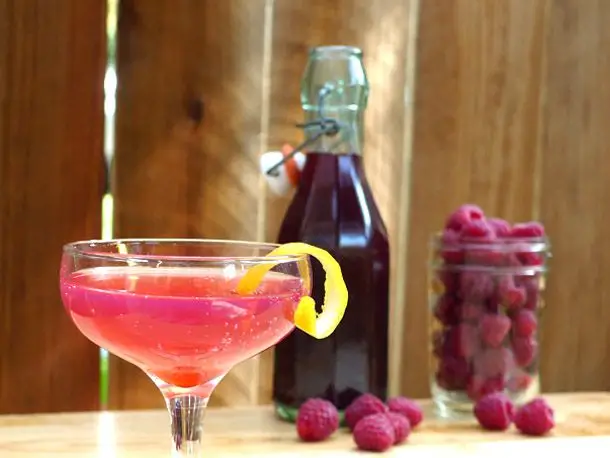
The production of raspberry liqueur involves a careful and intricate process that can vary depending on the specific brand or regional tradition. However, there are some common steps that are generally followed in the creation of this unique spirit.
Selecting the Raspberries
The first and perhaps most crucial step in the production of raspberry liqueur is the selection of the raspberries. Growers and producers must carefully choose the ripest and most flavorful berries, often sourcing them from local or regional farms that specialize in the cultivation of this delicate fruit.
The quality of the raspberries used can have a significant impact on the final flavor and aroma of the liqueur, so producers often take great care in sourcing the best possible ingredients.
Maceration and Infusion
Once the raspberries have been selected, they are typically macerated or infused in a high-proof alcohol, such as vodka or neutral grain spirit. This process allows the flavors and aromas of the raspberries to be extracted and infused into the liquid.
The length of the maceration or infusion can vary, with some producers allowing the process to continue for several weeks or even months to ensure a deeper and more complex flavor profile.
Distillation and Blending
After the initial maceration or infusion, the raspberry-infused liquid is typically distilled to remove any impurities and to concentrate the flavors. This distillation process can involve the use of traditional copper pot stills or more modern continuous stills, depending on the preferences and equipment of the producer.
Once distilled, the raspberry liqueur may be blended with additional flavorings, such as sugar or other fruit essences, to achieve the desired sweetness and balance. The final product is then carefully bottled and labeled, ready for distribution and consumption.
Aging and Maturation
In some cases, the raspberry liqueur may undergo a process of aging or maturation, where it is stored in oak barrels or other vessels to allow the flavors to develop and mellow over time. This aging process can impart additional complexity and depth to the liqueur, creating a more nuanced and sophisticated flavor profile.
The length of the aging process can vary, with some raspberry liqueurs being aged for several months or even years before being released to the market.
Popular Brands of Raspberry Liqueur
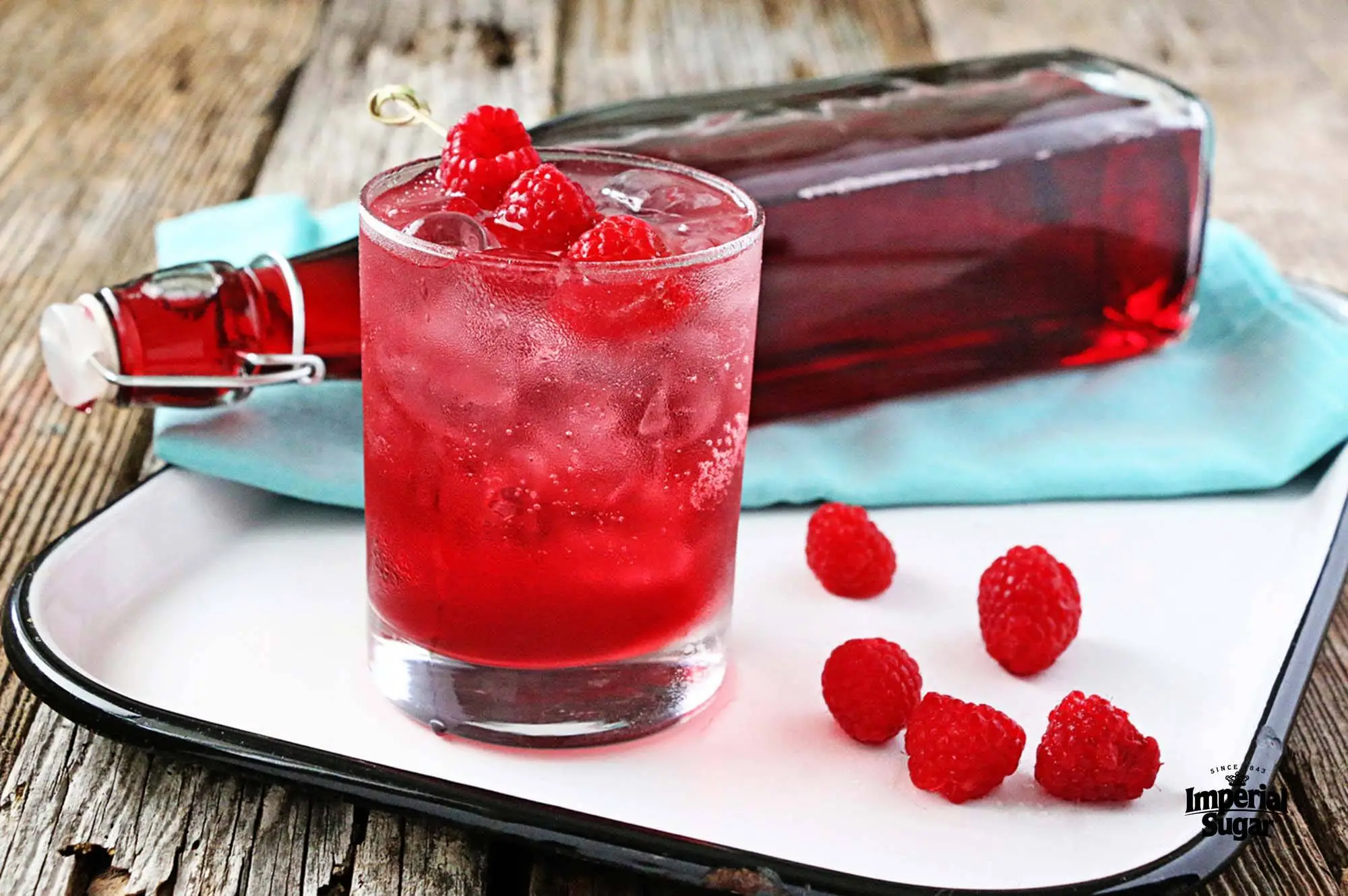
There are numerous popular brands of raspberry liqueur available on the market, each with its own unique flavor profile and production process. Here are some of the most well-known and sought-after raspberry liqueurs:
| Brand | Origin | Flavor Profile |
|---|---|---|
| Chambord | France | A classic French-style raspberry liqueur with a smooth, velvety texture and a balance of tart and sweet flavors. |
| Verpoorten Raspberry | Germany | A creamy, indulgent raspberry liqueur with a rich, almost dessert-like character. |
| Drillaud Raspberry | France | A bright and vibrant raspberry liqueur with a pronounced tartness and a clean, refreshing finish. |
| Merlet Framboise | France | A premium raspberry liqueur with a complex, layered flavor profile that showcases the natural sweetness and acidity of the berries. |
| Rothman Winter Orchard Raspberry | Austria | A versatile raspberry liqueur with a strong fruit presence and a well-balanced, slightly floral character. |
| Giffard Framboise | France | A smooth and elegant raspberry liqueur with a subtle sweetness and a silky, velvety mouthfeel. |
| Luxardo Raspberry | Italy | A bold and intense raspberry liqueur with a bold, tart flavor and a long, lingering finish. |
These are just a few examples of the many excellent raspberry liqueurs available on the market. Each brand offers its own unique interpretation of this beloved spirit, catering to a wide range of palates and preferences.
Recipes Using Raspberry Liqueur
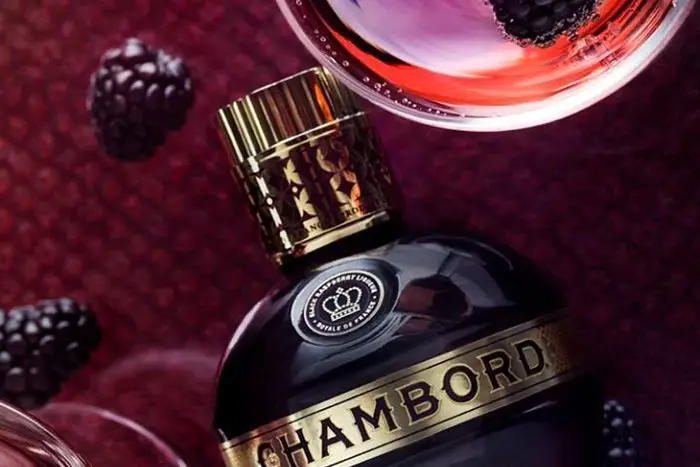
Raspberry liqueur is a versatile ingredient that can be used in a variety of cocktails, desserts, and other culinary applications. Here are some delicious recipes that showcase the delightful flavor of this liqueur:
Raspberry Liqueur Cocktails
- Raspberry Martini: A classic cocktail made with raspberry liqueur, vodka, and a splash of lime juice, served chilled and garnished with a fresh raspberry.
- French Maid: A refreshing cocktail featuring raspberry liqueur, gin, and ginger beer, served over ice and garnished with a lemon twist.
- Raspberry Mojito: A twist on the classic mojito, made with raspberry liqueur, white rum, lime juice, mint, and club soda.
- Raspberry Bellini: A sparkling cocktail combining raspberry liqueur and chilled Prosecco or sparkling wine, often garnished with a fresh raspberry.
- Raspberry Margarita: A tart and tangy margarita made with raspberry liqueur, silver tequila, and lime juice, served on the rocks with a salt rim.
Raspberry Liqueur Desserts
- Raspberry Liqueur Cheesecake: A rich and creamy cheesecake infused with raspberry liqueur and topped with a raspberry coulis.
- Raspberry Liqueur Chocolate Truffles: Decadent chocolate truffles filled with a raspberry liqueur ganache, coated in cocoa powder or chopped nuts.
- Raspberry Liqueur Tiramisu: A twist on the classic Italian dessert, with layers of ladyfingers soaked in raspberry liqueur, mascarpone cream, and cocoa powder.
- Raspberry Liqueur Creme Brulee: A custard-based dessert with a sweet raspberry liqueur infusion, topped with a caramelized sugar crust.
- Raspberry Liqueur Trifle: A layered dessert featuring sponge cake or pound cake, raspberry liqueur-soaked berries, and a creamy custard or whipped cream.
Raspberry Liqueur Pairings
- Cheese: Raspberry liqueur pairs beautifully with creamy, soft-ripened cheeses like Brie or Camembert, as well as tangy, crumbly blue cheeses.
- Chocolate: The tart and sweet flavors of raspberry liqueur complement the richness of dark chocolate perfectly, making it a popular ingredient in chocolate-based desserts and truffles.
- Nuts: The nutty and toasted flavors of almonds, walnuts, or hazelnuts can enhance the fruity notes of raspberry liqueur in various desserts and cocktails.
- Herbs and Spices: Herbs like mint, rosemary, or thyme, as well as spices like cinnamon or cardamom, can create interesting and unexpected flavor combinations with raspberry liqueur.
- Sparkling Wines: The effervescence and acidity of sparkling wines, such as Champagne or Prosecco, can provide a delightful contrast to the sweetness of raspberry liqueur in cocktails and mixed drinks.
Health Benefits of Raspberry Liqueur
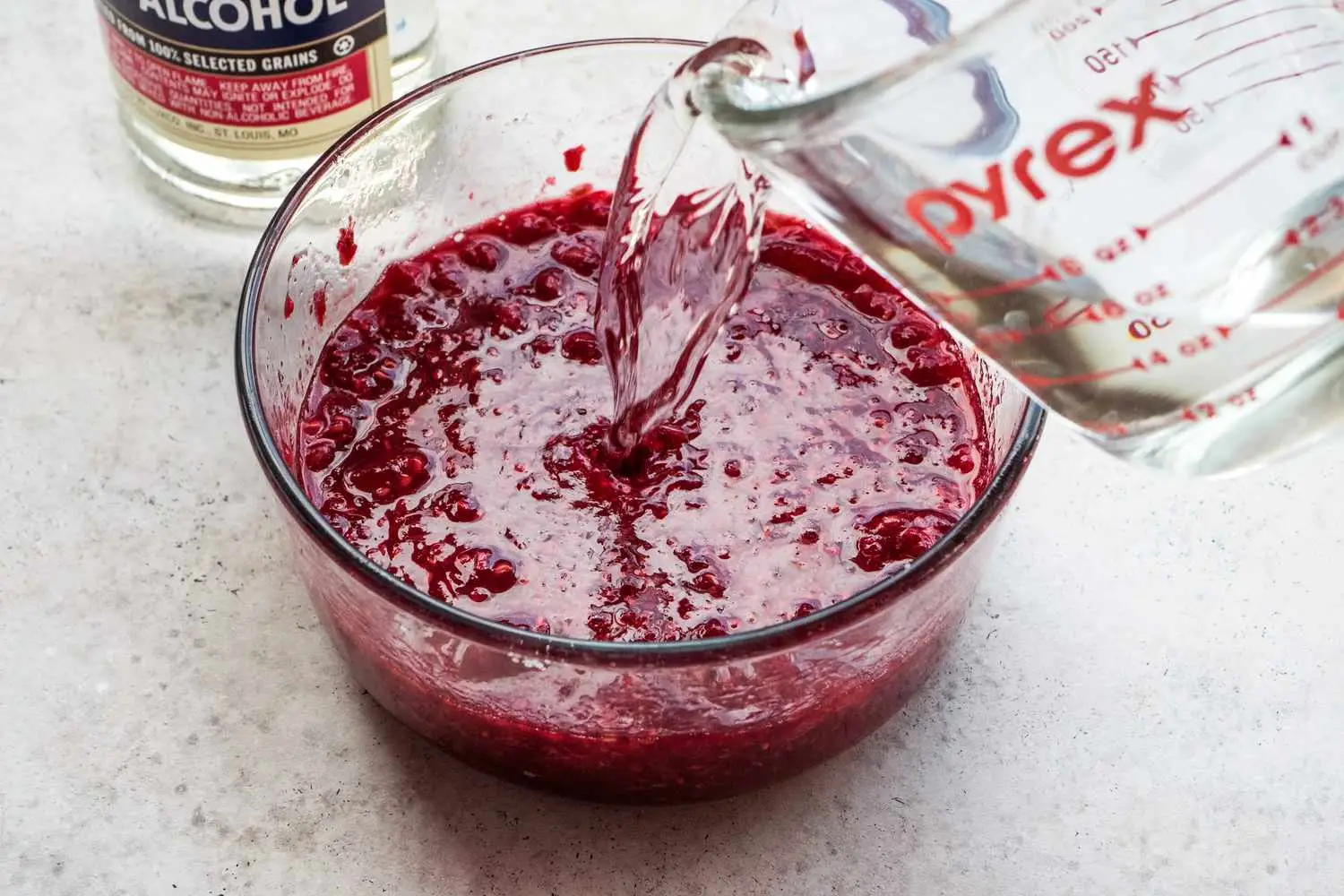
While raspberry liqueur is primarily enjoyed for its delicious flavor and versatility in cocktails and desserts, it also offers some potential health benefits that are worth noting.
Antioxidant Properties
Raspberries are rich in antioxidants, including vitamins C and E, as well as polyphenols like ellagic acid and anthocyanins. These antioxidants can help to neutralize free radicals, reducing the risk of oxidative stress and potentially offering protection against certain chronic diseases.
When raspberries are used to create a liqueur, some of these beneficial antioxidants can be preserved and concentrated in the final product, making raspberry liqueur a potentially healthier choice compared to some other spirits.
Potential Anti-Inflammatory Effects
Raspberries contain compounds like ellagic acid and quercetin that have been shown to possess anti-inflammatory properties. These compounds may help to reduce inflammation in the body, which is associated with a range of health conditions, including heart disease, arthritis, and certain types of cancer.
While the exact amount of these beneficial compounds present in raspberry liqueur can vary, the inclusion of raspberries as a key ingredient may provide some anti-inflammatory benefits.
Improved Digestion
Raspberry liqueur, when consumed in moderation, may also help to improve digestion. The tart and slightly acidic nature of raspberries can stimulate the production of digestive juices, which can aid in the breakdown and absorption of nutrients.
Additionally, the alcohol content in raspberry liqueur can also act as a mild digestif, helping to soothe the digestive system and potentially reducing the risk of indigestion or other gastrointestinal issues.
It’s important to note that, as with any alcoholic beverage, raspberry liqueur should be consumed in moderation as part of a balanced and healthy lifestyle. The potential health benefits mentioned above are not a justification for excessive or irresponsible consumption.
Raspberry Liqueur Cocktails
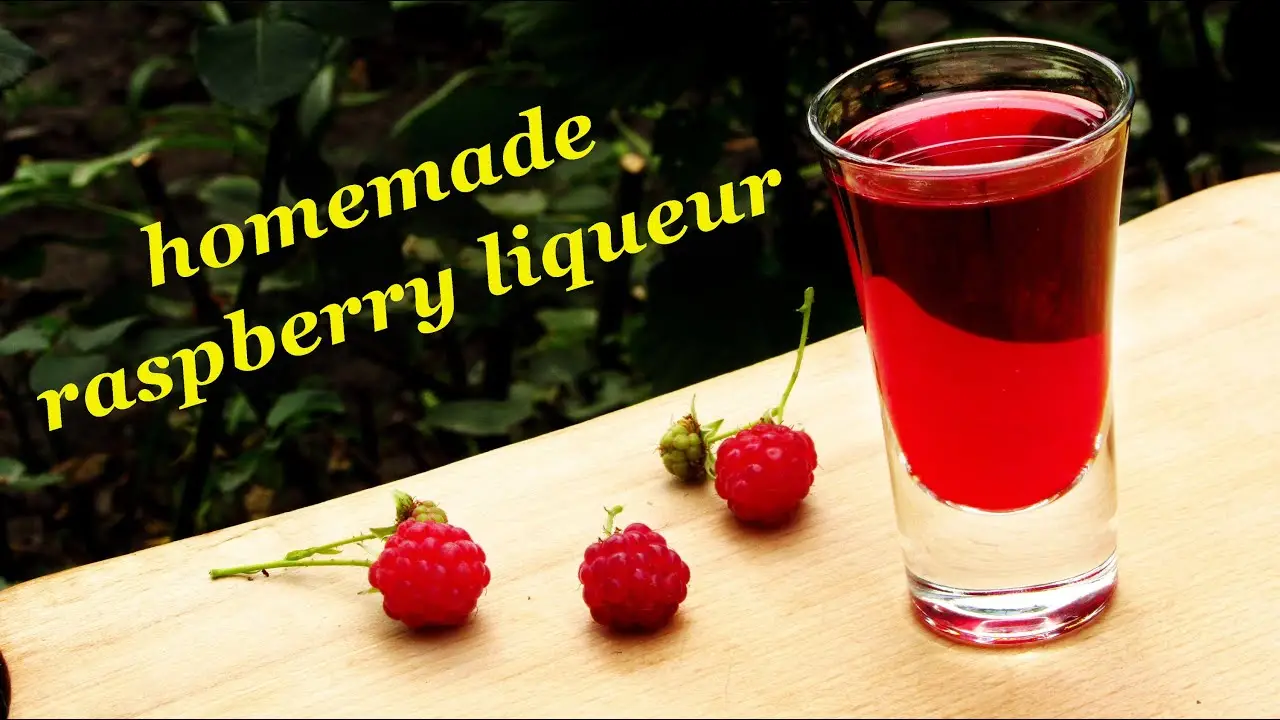
Raspberry liqueur is a versatile and popular ingredient in a wide range of cocktails, adding a delightful fruity and tart flavor to a variety of mixed drinks. Here are some of the most popular and delicious raspberry liqueur cocktails:
Raspberry French 75
- 2 oz gin
- 1 oz raspberry liqueur
- 1 oz freshly squeezed lemon juice
- 2 oz chilled Champagne or sparkling wine
- Garnish: Lemon twist
Combine the gin, raspberry liqueur, and lemon juice in a cocktail shaker filled with ice. Shake vigorously and strain into a chilled Champagne flute. Top with chilled Champagne or sparkling wine and garnish with a lemon twist.
Raspberry Mojito
- 2 oz white rum
- 1 oz raspberry liqueur
- 1 oz freshly squeezed lime juice
- 8-10 fresh mint leaves
- 2 oz club soda
- Garnish: Mint sprig and fresh raspberries
In a highball glass, muddle the mint leaves with the lime juice. Add the rum and raspberry liqueur, then fill the glass with crushed ice. Top with club soda and stir gently to combine. Garnish with a mint sprig and fresh raspberries.
Raspberry Margarita
- 2 oz tequila
- 1 oz raspberry liqueur
- 1 oz freshly squeezed lime juice
- 1 oz simple syrup
- Garnish: Lime wedge and salt rim (optional)
Fill a cocktail shaker with ice. Add the tequila, raspberry liqueur, lime juice, and simple syrup. Shake vigorously until well-chilled. Strain into a rocks glass filled with ice. Garnish with a lime wedge and, if desired, rim the glass with salt.
Raspberry Bellini
- 1 oz raspberry liqueur
- 4 oz chilled Prosecco or sparkling wine
- Garnish: Fresh raspberry
Pour the raspberry liqueur into a Champagne flute. Top with chilled Prosecco or sparkling wine. Gently stir to combine and garnish with a fresh raspberry.
Raspberry Collins
- 2 oz gin
- 1 oz raspberry liqueur
- 1 oz freshly squeezed lemon juice
- 2 oz club soda
- Garnish: Lemon wheel and fresh raspberries
Fill a highball glass with ice. Add the gin, raspberry liqueur, and lemon juice. Top with club soda and stir gently to combine. Garnish with a lemon wheel and fresh raspberries.
These are just a few examples of the many delicious and refreshing raspberry liqueur cocktails that can be created. The versatility of this liqueur makes it a popular choice for mixologists and home bartenders alike.
Difference Between Raspberry Liqueur and Raspberry Schnapps
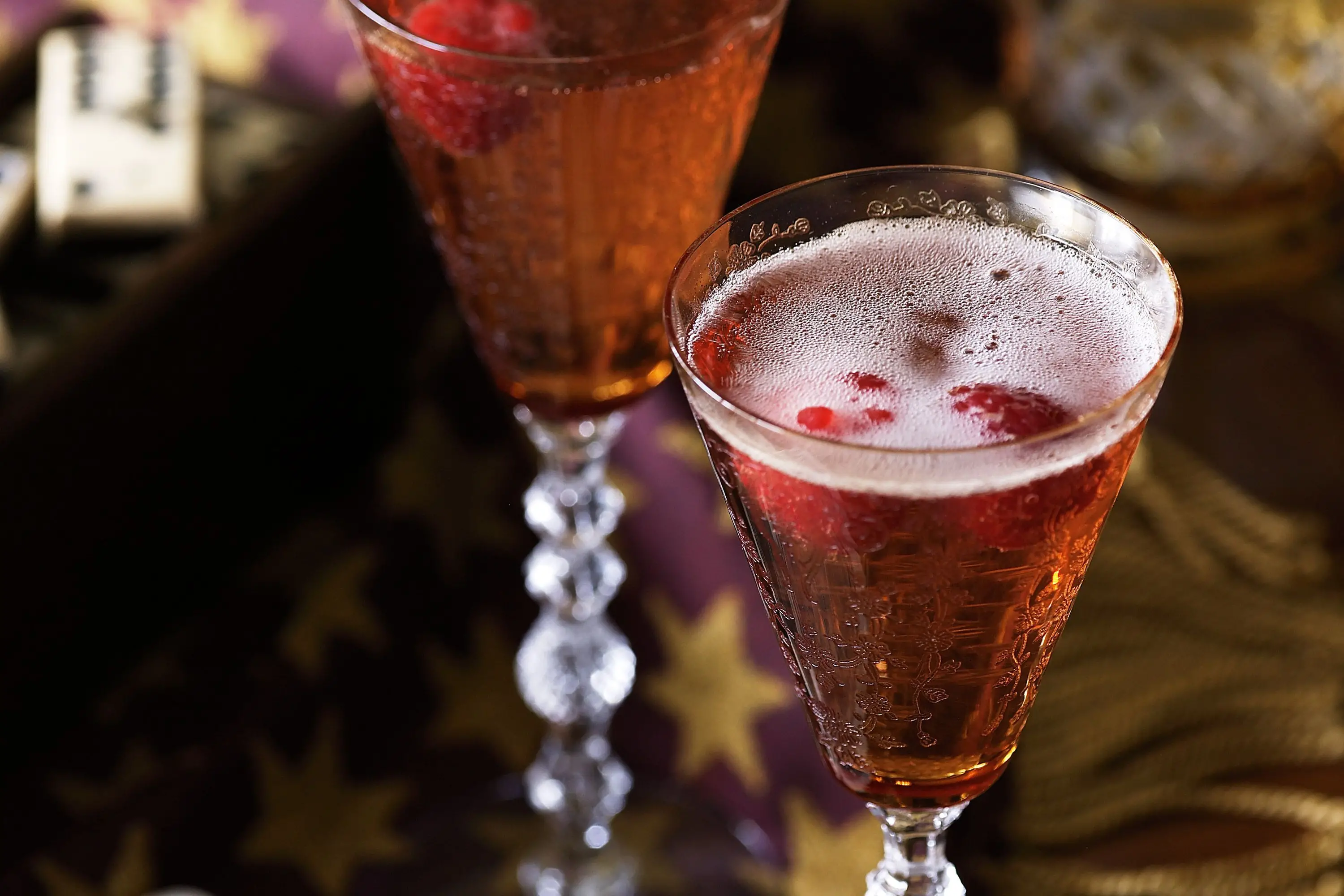
While both raspberry liqueur and raspberry schnapps are fruit-based spirits, there are some key differences between the two:
| Raspberry Liqueur | Raspberry Schnapps |
|---|---|
| Higher alcohol content (typically 16-20% ABV) | Lower alcohol content (typically 15-20% ABV) |
| Sweeter and more velvety in texture | Drier and more intense in flavor |
| Made by macerating or infusing raspberries in a neutral spirit | Made by distilling a fermented raspberry mash |
| Often aged in oak barrels for added complexity | Usually not aged or only briefly aged |
| Used primarily as a mixer in cocktails and desserts | Often consumed as a shot or chilled neat |
| Has a more well-rounded, balanced flavor profile | Has a more pronounced, almost tart, raspberry flavor |
| Typically has a higher sugar content | Generally has a lower sugar content |
| Considered a liqueur (a sweetened, fruit-based spirit) | Considered a schnapps (a clear, fruit-based spirit) |
While both raspberry liqueur and raspberry schnapps can be enjoyed in a variety of ways, the key differences in their production methods, alcohol content, and flavor profiles can make them better suited for different applications. Raspberry liqueur tends to work better in mixed drinks and desserts, while raspberry schnapps is often consumed on its own or as a shot.
Best Ways to Enjoy Raspberry Liqueur
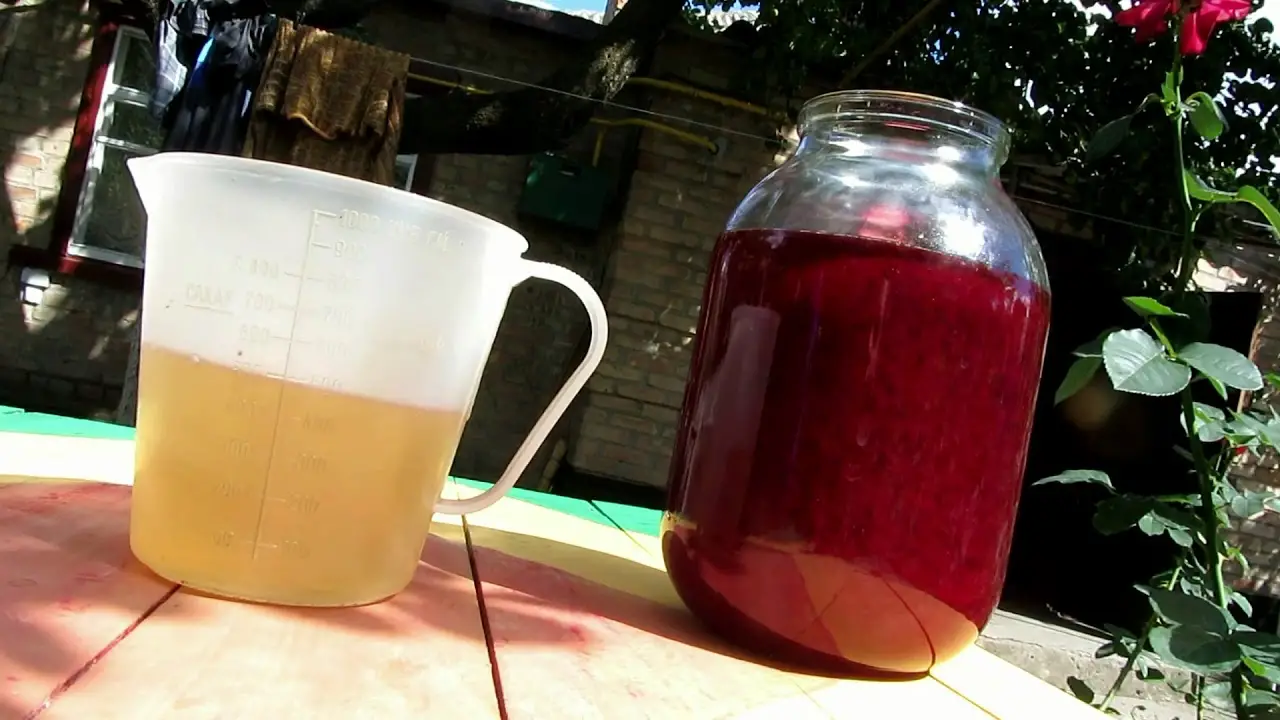
Raspberry liqueur is a versatile spirit that can be enjoyed in a variety of ways. Here are some of the best ways to experience the delightful flavors of this liqueur:
Sipping
Raspberry liqueur can be enjoyed simply on its own, either chilled or at room temperature. Its velvety, sweet-tart flavor profile makes it a delightful digestif or after-dinner drink. Serve it in a snifter or small glass and savor the complex fruity notes.
Cocktails
As previously mentioned, raspberry liqueur is a popular ingredient in a wide range of cocktails, from classic French 75s to refreshing mojitos. The liqueur’s ability to balance sweetness and acidity makes it a great addition to many mixed drinks.
Desserts
Raspberry liqueur is a natural pairing with rich, decadent desserts. It can be used to soak sponge cakes, infuse creams and custards, or as a flavoring in truffles, cheesecakes, and other sweet treats.
Cheese Pairings
The tart and fruity notes of raspberry liqueur complement the creaminess of soft-ripened cheeses, such as Brie or Camembert. It can also pair well with tangy blue cheeses, creating a delightful contrast of flavors.
Baking
Raspberry liqueur can be used in a variety of baked goods, from scones and muffins to pies and tarts. Its bold flavor can add depth and complexity to fruit-based desserts and pastries.
Mixology Experimentation
Beyond the classic cocktails, raspberry liqueur can be a versatile ingredient for the home bartender or mixologist to experiment with. Try incorporating it into unique spritz, fizz, or punch recipes to create unexpected and delightful flavor combinations.
No matter how you choose to enjoy it, raspberry liqueur is a delightful and versatile spirit that can elevate a wide range of culinary and beverage experiences.
Raspberry Liqueur Pairings
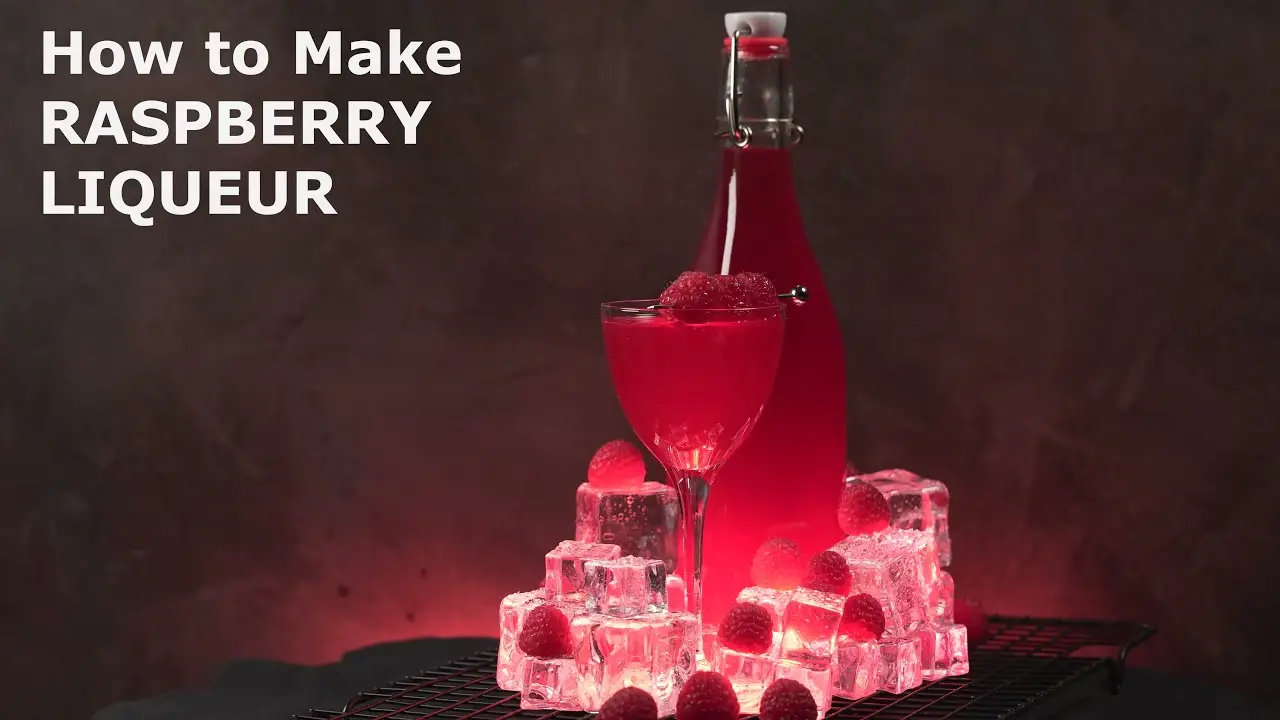
Raspberry liqueur is a highly versatile spirit that can be paired with a variety of foods and beverages. Here are some delicious and complementary pairings to consider:
Cheese Pairings
- Soft-ripened cheeses like Brie, Camembert, or Époisses
- Creamy blue cheeses like Gorgonzola or Roquefort
- Aged Gouda or Gruyère
- Fresh chèvre (goat cheese)
The tart and fruity notes of raspberry liqueur can balance the richness of creamy, soft-ripened cheeses, while also complementing the tangy, complex flavors of blue and aged cheeses.
Chocolate Pairings
- Dark chocolate
- Milk chocolate
- White chocolate
- Chocolate truffles
Raspberry liqueur’s sweet-tart flavor profile pairs beautifully with the richness of chocolate, creating a decadent and indulgent combination that is perfect for desserts or special occasions.
Fruit Pairings
- Fresh raspberries
- Strawberries
- Blackberries
- Peaches
Pairing raspberry liqueur with fresh fruits enhances the fruity notes of the liqueur and creates a vibrant and refreshing flavor profile that is perfect for summer cocktails, fruit salads, or dessert toppings.
Nut Pairings
- Almonds
- Pistachios
- Hazelnuts
- Pecans
The nutty flavors of almonds, pistachios, hazelnuts, and pecans can complement the sweet and fruity notes of raspberry liqueur, creating a balanced and sophisticated pairing for cocktails, desserts, or cheese boards.
Herb Pairings
- Mint
- Basil
- Rosemary
- Thyme
Incorporating fresh herbs like mint, basil, rosemary, and thyme can add an aromatic and herbaceous dimension to raspberry liqueur cocktails, enhancing the overall flavor profile and creating unique and refreshing drinks.
By exploring these different pairings, you can discover new and exciting ways to enjoy raspberry liqueur and enhance your culinary and mixology experiences.
Homemade Raspberry Liqueur Recipe
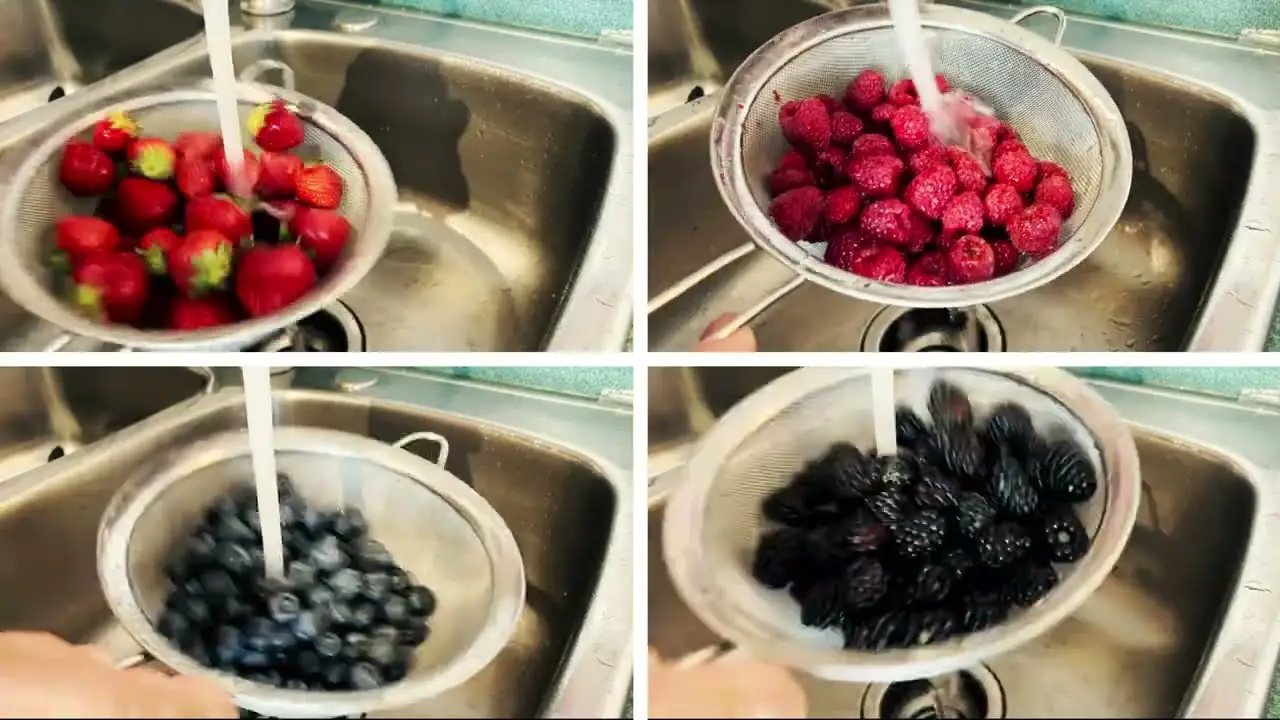
For those who enjoy DIY projects and homemade spirits, making your own raspberry liqueur can be a fun and rewarding endeavor. Here is a simple recipe to create your own delicious raspberry liqueur at home:
Ingredients:
- 2 cups fresh raspberries
- 1 cup granulated sugar
- 1 cup water
- 1 1/2 cups vodka or neutral grain spirit
Instructions:
- Wash the raspberries and place them in a clean glass jar or container.
- In a saucepan, combine the sugar and water over medium heat, stirring until the sugar is fully dissolved to create a simple syrup.
- Pour the simple syrup over the raspberries in the jar.
- Add the vodka or neutral grain spirit to the jar and stir gently to combine.
- Seal the jar tightly and store it in a cool, dark place for at least two weeks, shaking the jar gently every few days to mix the ingredients.
- After two weeks, strain the mixture through a fine-mesh sieve or cheesecloth to remove the raspberry solids, pressing down to extract all the liquid.
- Transfer the raspberry liqueur to a clean bottle or container for storage.
Your homemade raspberry liqueur is now ready to be enjoyed! You can use it in cocktails, desserts, or simply savor it on its own. Experiment with different ratios of raspberries, sugar, and alcohol to customize the flavor to your liking.
Conclusion about Raspberry Liqueur Cocktails
Raspberry liqueur is a delightful and versatile spirit with a rich history, a wide range of production methods, and numerous applications in mixology and culinary arts. Whether enjoyed on its own, mixed into cocktails, or used in desserts, raspberry liqueur adds a sweet-tart complexity that enhances the overall flavor profile of any dish or drink.
From classic cocktails like the French Martini to homemade raspberry liqueur recipes, there are endless ways to experience the vibrant flavors of raspberries in liqueur form. By exploring the history, production process, popular brands, recipes, health benefits, and pairings of raspberry liqueur, enthusiasts can deepen their appreciation for this beloved spirit and unlock new possibilities for creative culinary and mixology endeavors.
Whether you prefer sipping raspberry liqueur neat, mixing it into a refreshing cocktail, or incorporating it into a decadent dessert, one thing is certain: the sweet and tangy essence of raspberries in liqueur form is sure to delight your taste buds and elevate your drinking experience. Cheers to the versatile and delicious world of raspberry liqueur!

 Agricultural
Agricultural Fruit Wine
Fruit Wine Dried Food
Dried Food Rice
Rice